Informatics at the service of collective well-being and personal development.
The Faculty of Informatics has a vision of a world in which the intensive and growing use of informatics is oriented towards collective well-being and personal development. Its mission is to contribute to this orientation through education, scientific research and service to society.
La Faculté d'informatique recrute !
The studies
When you choose to study computer science, you're guaranteed immediate access to an exciting, multi-faceted career. Through a comprehensive range of courses - bachelor's, master's, specialization master's and doctorate - the Faculty of Computer Science offers you quality training based on scientific rigor and critical thinking, while emphasizing interdisciplinarity and societal responsibility.
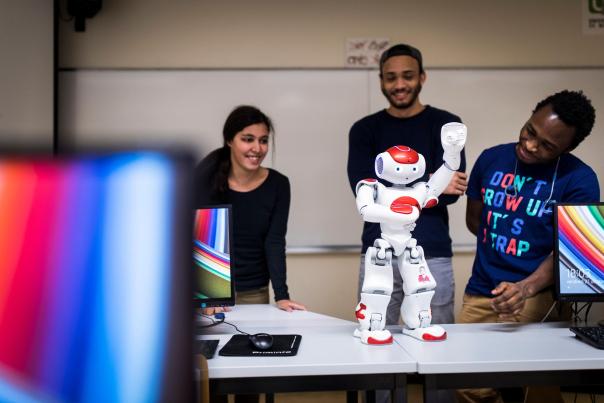
Search
The mission of the Faculty of Computer Science is to ensure cutting-edge scientific research, open to the creation and integration of knowledge that feeds teaching, technological innovation and societal debate.
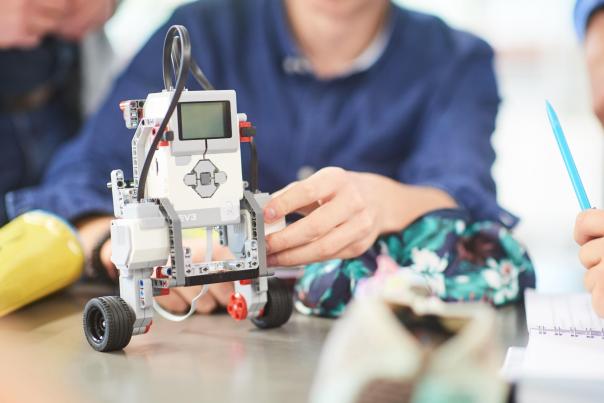
Service to society
The Faculty of Computer Science contributes to the development of our social, economic, technological and political environment by disseminating knowledge and providing advice at regional, national and international levels. Through the synergy between researchers and industry, and by making knowledge and know-how available, it participates in numerous missions of service to society.
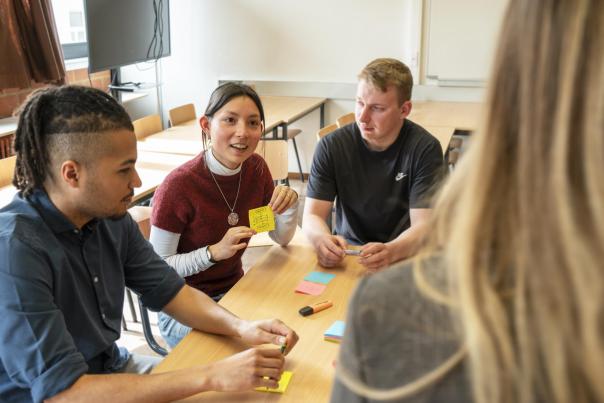
International
The Faculty of Computer Science's international outlook is fundamental to the development of its teaching and research activities.
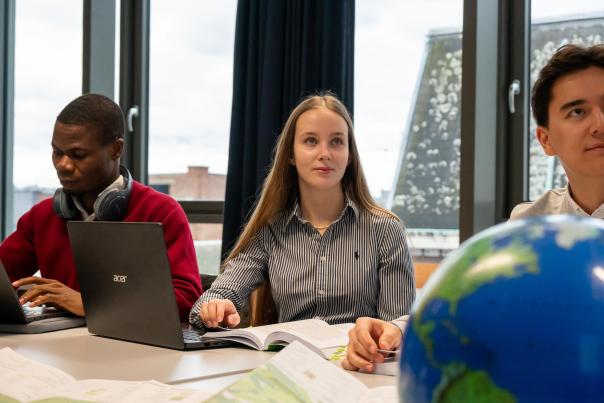
Organization
The Faculty of Computer Science has organized itself to manage its missions in the best possible way. It has around a hundred members at the service of teaching, research and service to society.
Le mot du Doyen
A chacun, nous désirons offrir un accès à cette formation de qualité ! Avec votre enthousiasme, votre talent et votre travail, vous définirez vos succès de demain. Nous avons hâte de collaborer avec chacun d’entre vous.
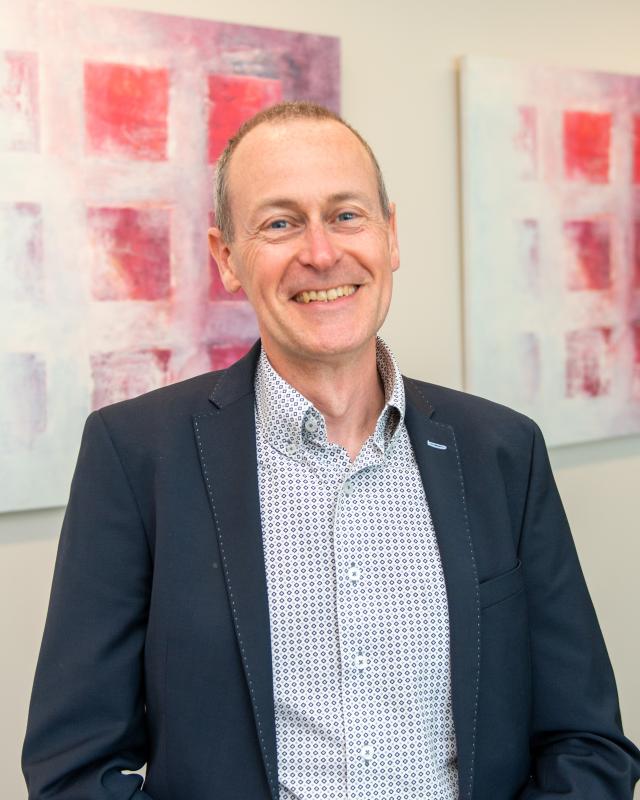
Animation
A series of events and players revolve around the Faculty of Computer Science.
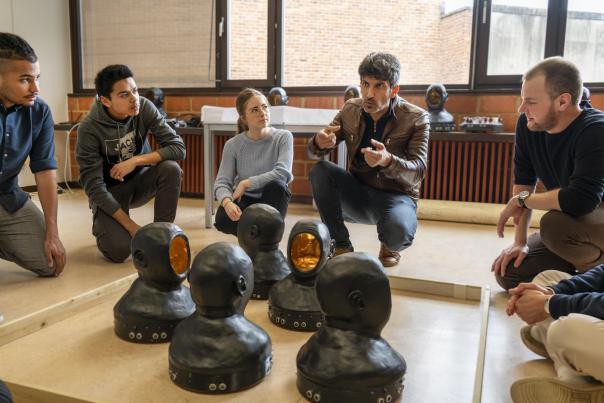
Spotlight
News
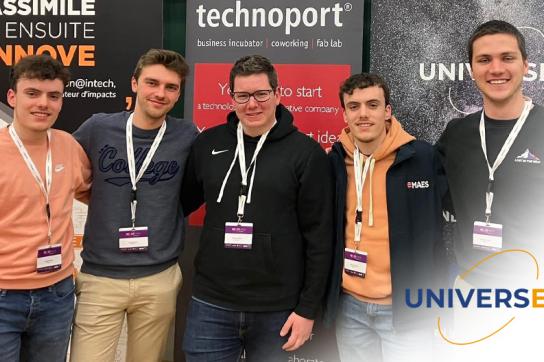
UNamur students take on space challenges at SpaceHack
UNamur students take on space challenges at SpaceHack
Five students with a passion for computer science represented the University of Namur at SpaceHack 2023 as part of the UniversEH alliance. This initiative aims to build a collective entrepreneurial action to explore the future potential of the space industry up to 2035. 26 countries took part in this international competition, which brought together start-ups, space-related companies and students on space-related programmes.
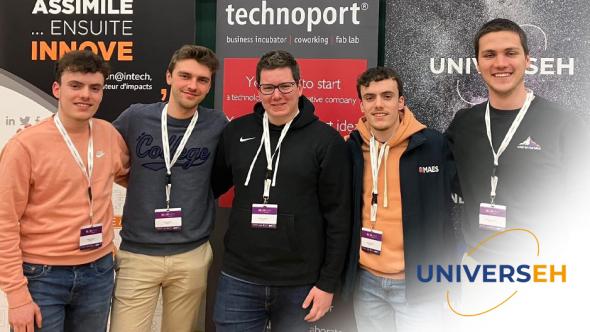
Durant la seconde semaine du pré-blocus, Florian Villeret, Martin et Virgile Devolder, Antoine Baetslé et Corentin Bouffioux, tous étudiants en informatique ont pu découvrir le monde de la technologie spatiale au cours de leur séjour à Belval au Luxembourg. En effet, ils ont eu l’occasion de visiter la Société européenne des Satellites et de suivre une présentation donnée par la Luxembourg Space Agency, une conférence par l’Asteroid Foundation ainsi qu’une présentation par PwC sur les innovations spatiales.
Ensuite, un peu comme un Hackathon, ils avaient tout un weekend pour relever un défi en développant un concept novateur. Plusieurs thématiques étaient proposées lors du SpaceHack (infrastructure, énergie, extraction de ressources et opération).
Ils ont choisi de s’attaquer au défi en lien avec les infrastructures lunaires. Le postulat de départ était le suivant : construire une base lunaire destinée à accueillir une colonie humaine aura un coût d’installation (25 milliards d’euros) et d’entretien (4 milliards d’euros par an).
Le défi en question ? Construire une base lunaire destinée à accueillir une colonie humaine et prévoir les coûts de l’installation (25 millions d’euros) et de l’entretien (4 milliards d’euros par an) de celle-ci. Ils ont donc développé deux technologies : un logiciel de maintenance prédictive afin d’anticiper d’éventuels problèmes au moyen de différents capteurs connectés grâce à l’IoT ainsi qu’un « hardware » permettant d’ajouter à des « rovers » déjà existant des capteurs afin de renforcer le maillage en capteurs sur la base. L’objectif était de réduire de 10% les maintenances à effectuer pour faire une économie de 400 millions d’euros par an.
Ce n’était pas un exercice facile parce que tout n’était pas en rapport avec l’informatique. Il y avait une partie technique et une partie économique et business et c’est cette deuxième partie moins en lien direct avec nos études qui nous a pris le plus de temps. Heureusement, des coachs venus des quatre coins du monde étaient là pour nous aider !
Même si le projet n’a pas remporté de prix, l’expérience a été très enrichissante pour ces étudiants.
Une belle occasion de mettre en avant l’UNamur au sein de l’alliance UniversEH, l’alliance « European Space University for Earth and Humanity » que l’UNamur a rejointe récemment !



